Most parents are and should be proud when their kids take off, achieve financial independence and start developing a career. However, every now and then, jealousy rears its ugly head and folks who should be celebrating with you, namely close family, instead get judgmental and petty.
A woman asked the internet if she was wrong to keep “allowing” her grown and adult daughter to purchase herself nice things with her own money. We reached out to the person who shared the post online via private message and will update the article when she gets back to us.
Normally, family should celebrate your child’s success

Image credits: monkeybusiness (not the actual photo)
But one woman had to deal with a SIL who decided to call her daughter a spoiled brat
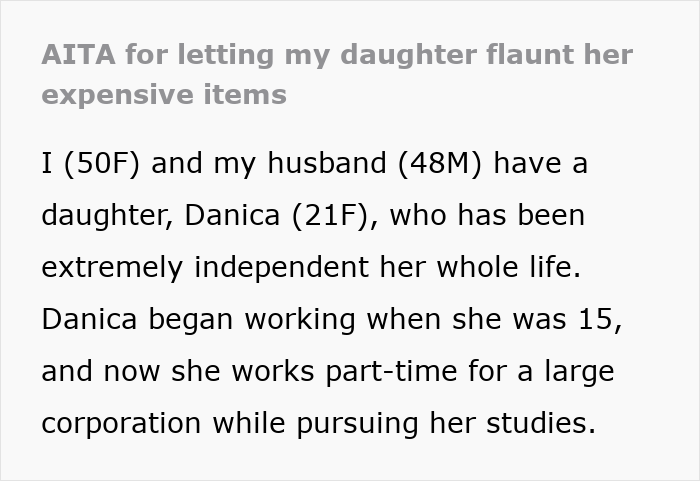
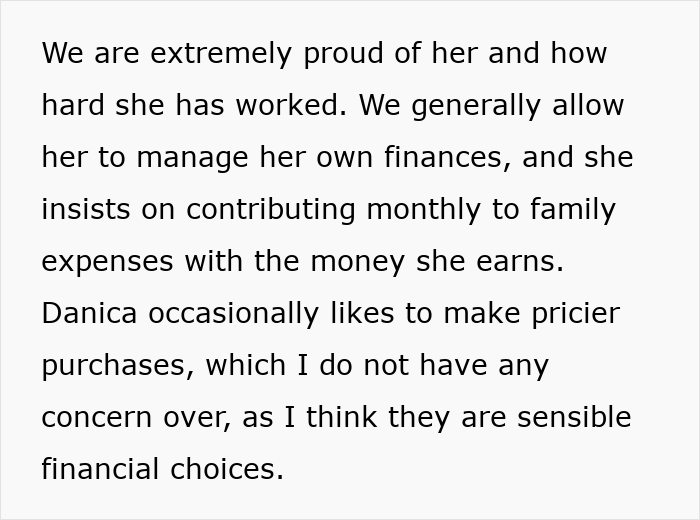

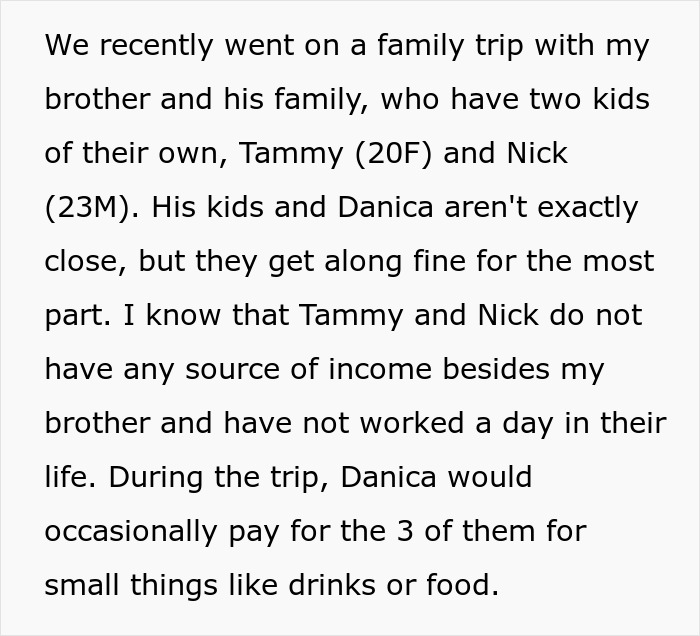

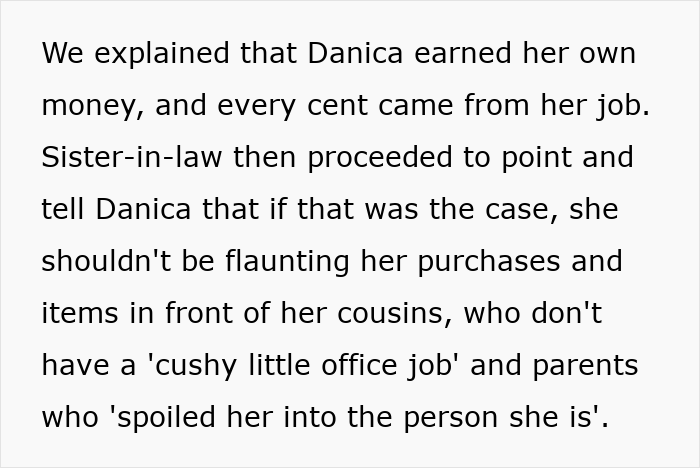

Image credits: s_kawee (not the actual photo)

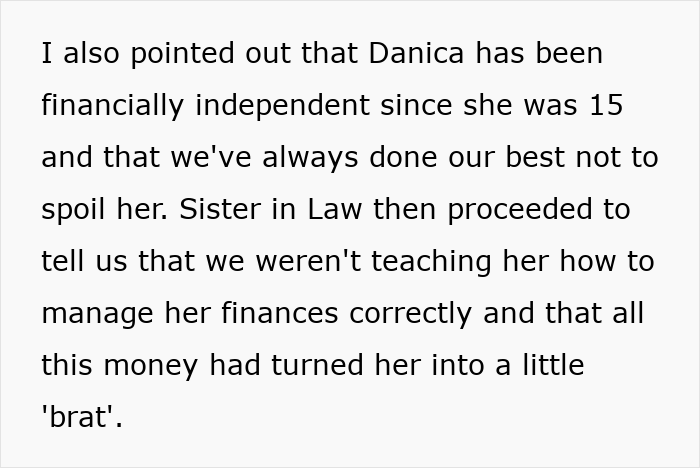

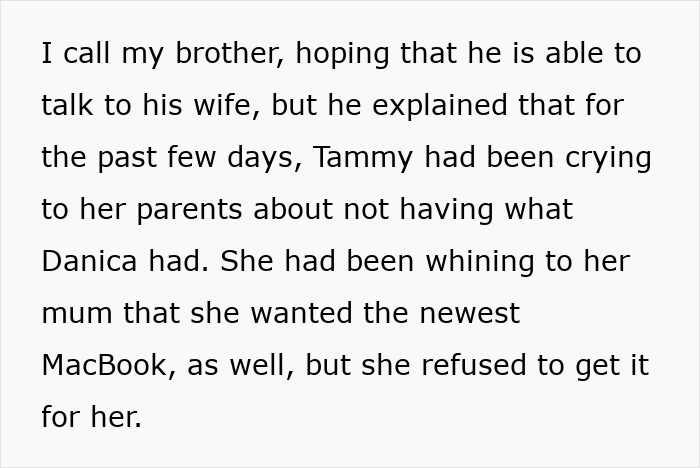

Image credits: Rich-Plane2730
Some people can’t handle their feelings of resentment even around family
Family has always been considered a source of love, support, and pride, but to many people, it is also a place where jealousy, resentment, and subtle toxicity actually bubble just beneath the surface, especially when comparisons are being made. One of the most emotionally charged relationships is when a cousin’s child or in-law is by traditional standards “more successful”, greater career, greater income, Ivy League education, public achievement, and suddenly that success is an unstated measuring stick for everybody else’s children. At such moments, some of the relatives cannot help but grapple with feelings they barely admit to: insecurity, inadequacy, and disappointment, often disguised as criticism or distance.
The genesis of this jealousy is complex. For some, their child’s success (or failure) is taken personally. When they see a sibling’s or cousin’s child succeed, winning prizes, having a home, owning a business, they somehow feel that their own effort as a parent has diminished. They ask themselves, “Where did I go wrong? “But instead of this making them feel vulnerable, they deflect their discomfort outward towards the individual they feel envious of.
That might take the form of passive-aggressive remarks, smugness, or backhanded compliments: “Well, some people get lucky,” or “Sure, but at least my kids have values.” Other times, though, jealousy is a matter of personal regret.”. A parent who never fulfilled their own dreams might project their unfulfilled dreams onto the child. When another member of the family succeeds in something they once loved, school, painting, money, medicine, it can bring a primitive, unconscious anger. It’s not that they actually want the other individual to fail; it’s that with each reminder of another’s success, they are struck by their own failure.

Image credits: Julia Taubitz (not the actual photo)
This can create a lot of unnecessary tension and toxicity
Instead of celebrating, they step back or try to undercut. This stress often expresses itself as toxic behavior, specifically in family settings where boundaries are loose and expectations high. Family members may quietly exclude or devalue the successful person in order to level the emotional playing field. Others may resent their own children, pushing them to accomplish more in punitive or performative ways. What results is a setting where love is conditional, communications are seasoned with judgment, and competition secretly replaces connection. It stings more because, unlike friends or colleagues, it’s not easy to just walk away from family. These tensions usually come out at birthday parties, reunions, Christmas dinners, or, like in this story, vacations, where the forced grin covers the hidden bitterness. It’s disorienting, particularly for the envied person. They may feel the tension but have no idea why it’s there.
They may feel guilty or obligated to downplay their success just to keep from causing conflict, shrinking themselves so other individuals won’t feel diminished. This pattern can be shifted with truth and compassion, but with clear boundaries as well. Keep in mind, jealousy is not about you, it’s about the other individual’s unresolved experience of lack. You can’t fix their disappointment, and you do not owe anyone an apology for your journey. And at the same time, if you’re the child being unfavorably compared, remember that your worth is not measured in terms of a job title or an account balance.
Individuals mature at irregular rates, in different directions. Families need not be war zones of silent rivalry. But breaking out of the toxic cycles of comparison and jealousy takes effort from all sides. It is learning to rejoice with others without regarding their success as a threat. It is realizing that love is not something earned on the basis of status. And most of all, it is healing the old tales, about failure, pride, and shame, that make kinship into low-key competition. This is the only way families can really be there for each other, not despite differences, but because of them.

Image credits: Obie Fernandez (not the actual photo)
Most readers thought the brother and his wife were ridiculous

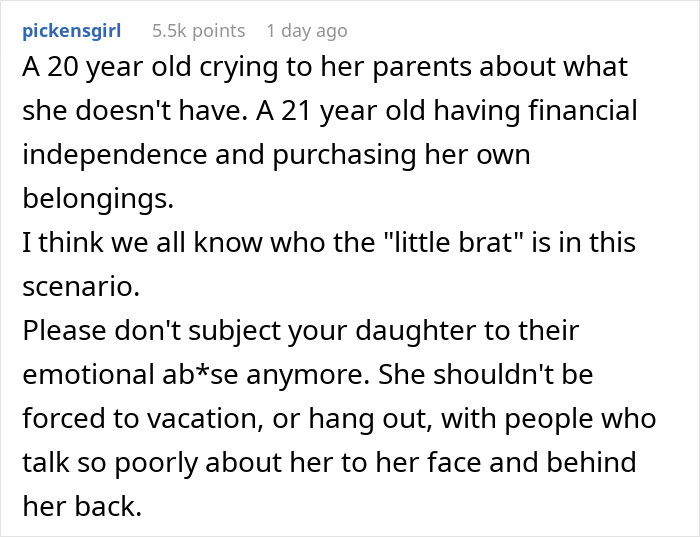
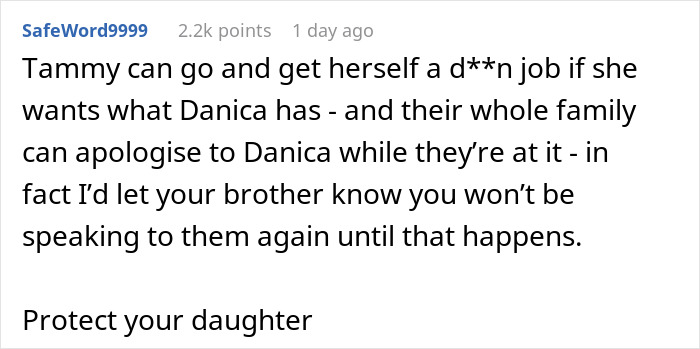

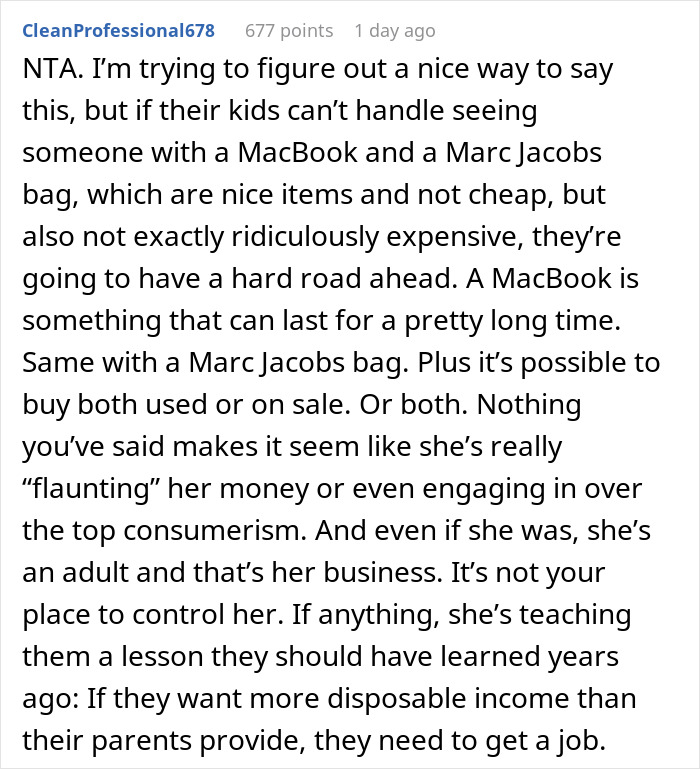

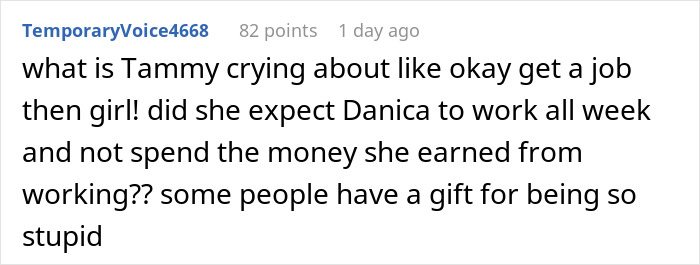

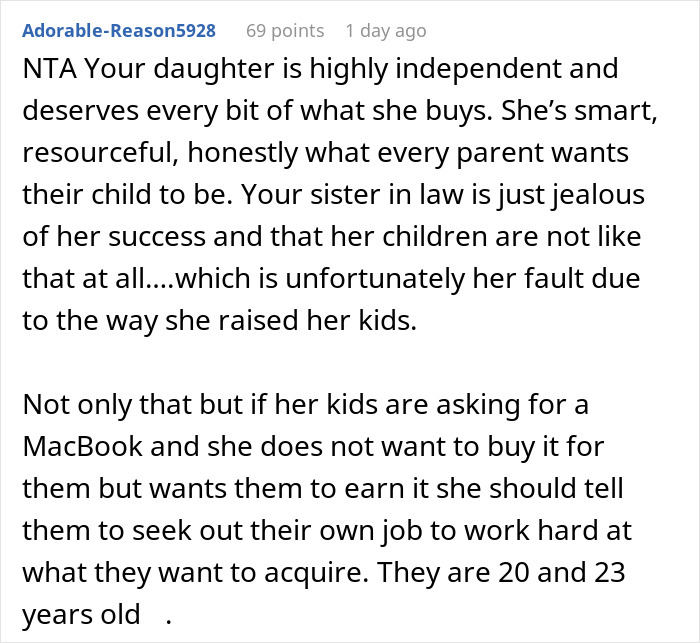
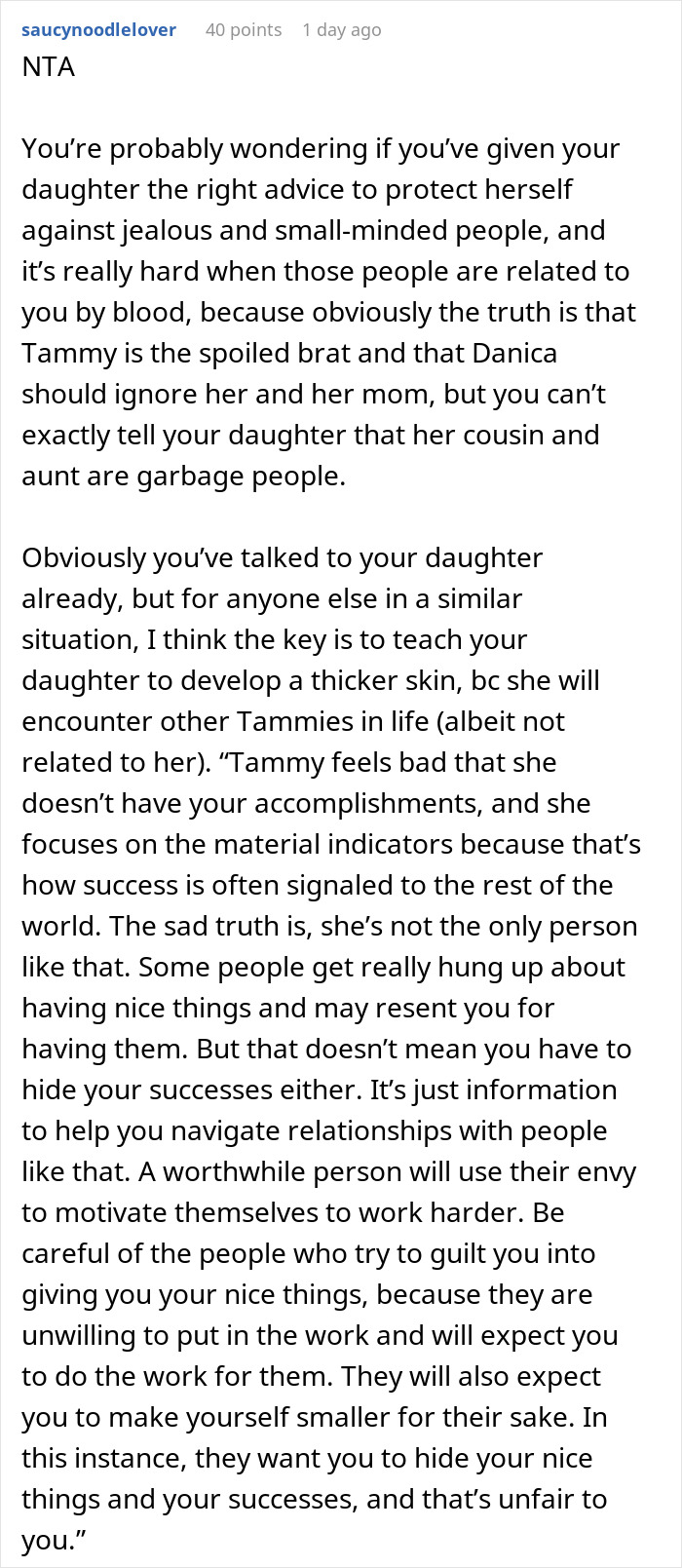
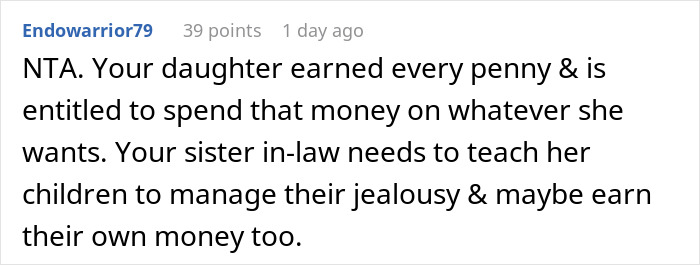
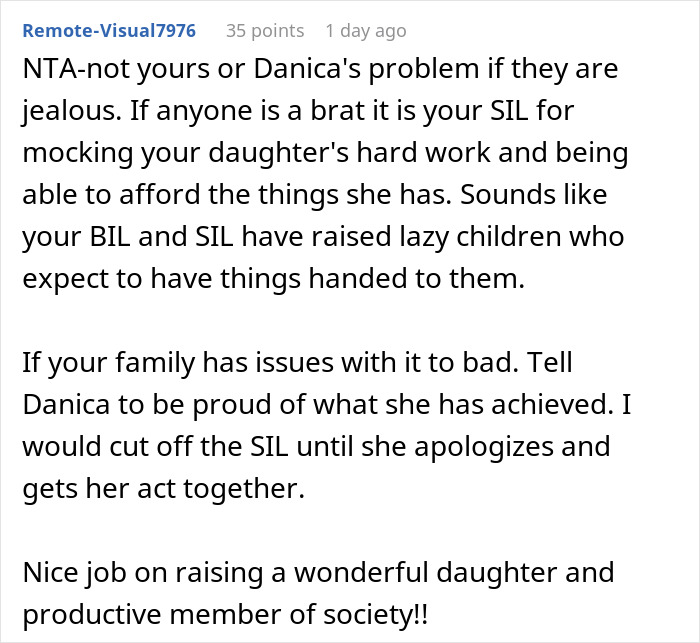


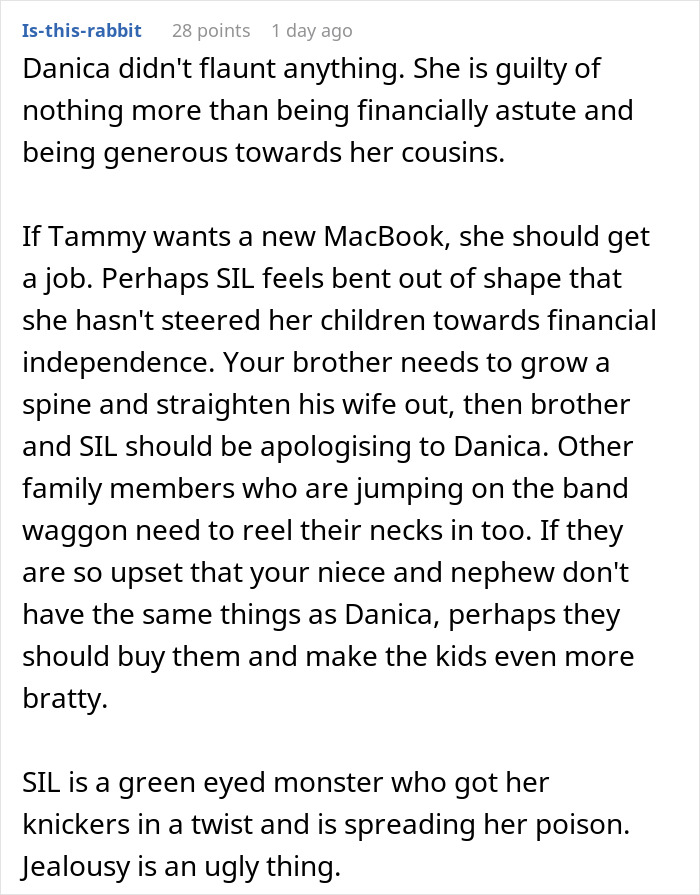

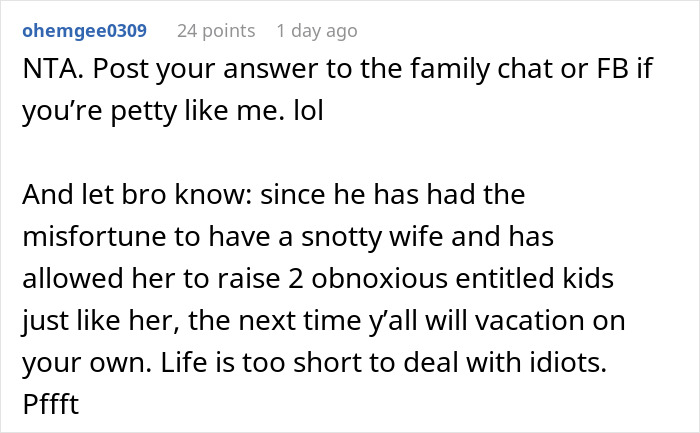
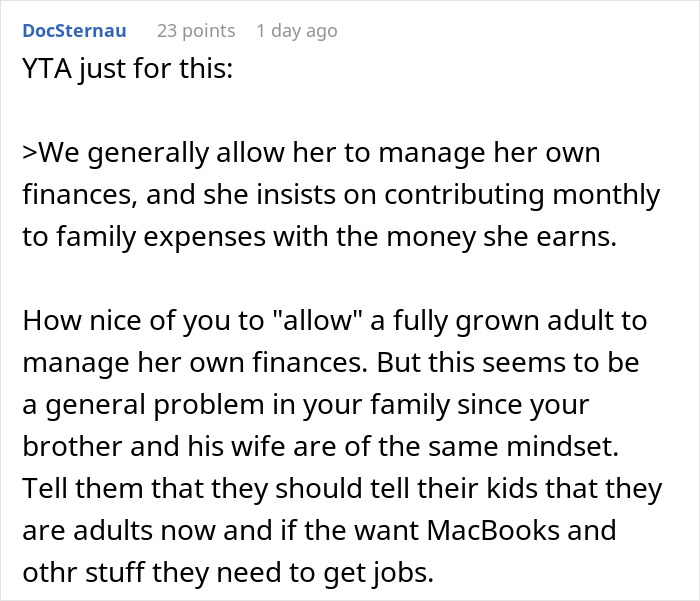





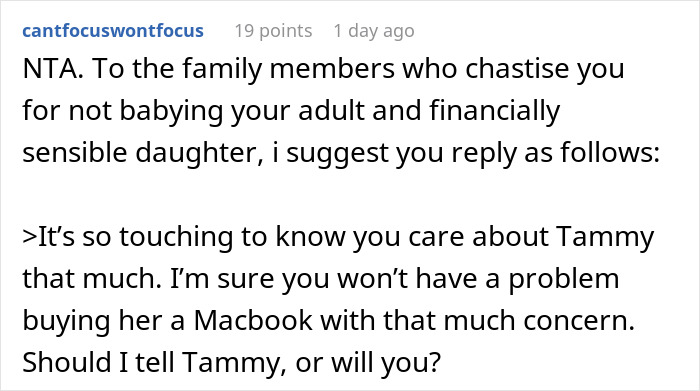
from Bored Panda https://ift.tt/PQpAasK
via IFTTT source site : boredpanda